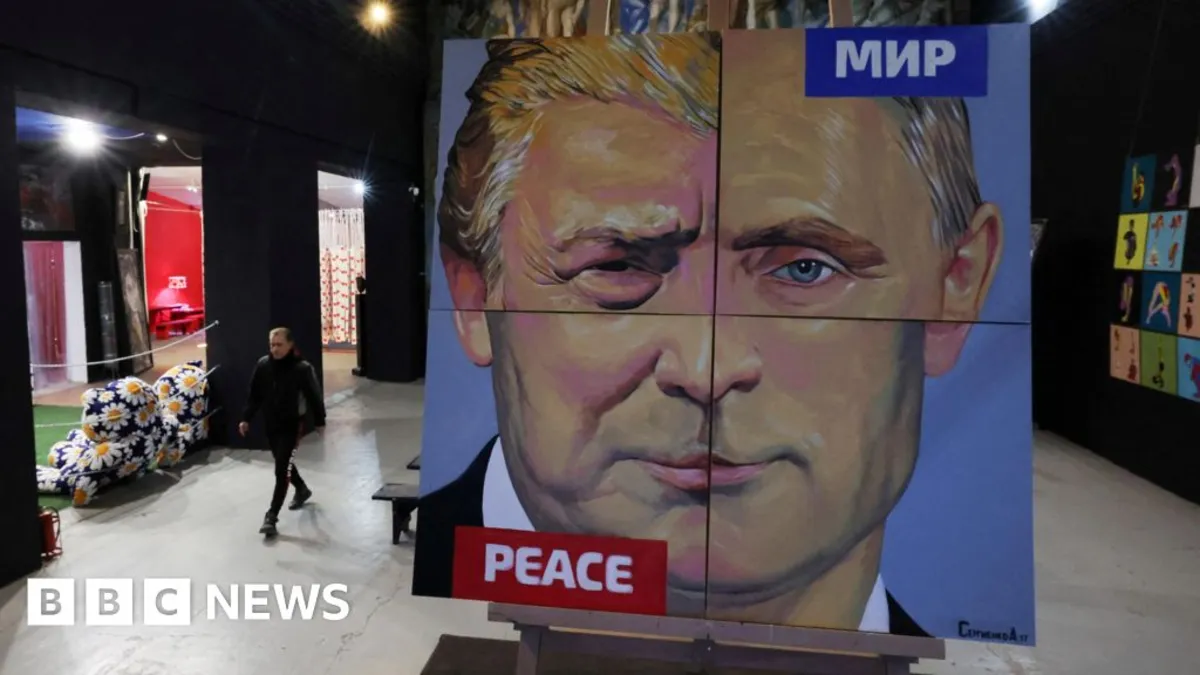
Recent headlines from Russia suggest that the Kremlin is optimistic following the latest telephone conversation between Presidents Putin and Trump. According to reports, the two leaders agreed to collaborate on a resolution for the ongoing conflict in Ukraine, as noted by the Russian newspaper Izvestia. Another publication, Komsomolskaya Pravda, emphasized the significance of the lengthy two-hour call, declaring it a record-long conversation. The overall sentiment in Russia is that they have secured a diplomatic victory.
The perception of victory among Russian officials stems from the fact that by the end of the conversation, Vladimir Putin appeared to have avoided making significant concessions to either Ukraine or the United States. In a notable turn, he effectively dismissed President Trump's proposal for an immediate, unconditional 30-day ceasefire, which had been a point of contention. This refusal has led to speculation about the direction of future negotiations.
Instead of applying pressure through threats of stricter sanctions to compel Russia to commit to its peace plan, the Trump administration's response was unexpectedly complimentary. President Trump stated in an interview with Fox News, "We had a great call," while his envoy, Steve Witkoff, commended Putin for his efforts during the discussion aimed at achieving a peace deal.
Rather than agreeing to an unconditional ceasefire, President Putin outlined his own preconditions for a peaceful resolution. These stipulations include the cessation of Western military support for Kyiv, halting intelligence sharing with Ukrainian forces, and stopping mobilization efforts in Ukraine. Such terms are largely viewed as tactics to ensure Ukraine's capitulation, and analysts find it difficult to envision Kyiv accepting these demands.
The pressing question remains: could the Trump administration be swayed by Moscow into considering these conditions acceptable? If that were to happen, would Washington coerce Ukraine into acquiescence? Much hinges on whether the Kremlin can persuade President Trump that nurturing a positive relationship with Russia would be more beneficial than staunchly defending Ukraine's interests.
In the midst of these discussions, Russian officials have been promoting various economic and financial incentives to entice the United States into a more favorable bilateral relationship. They have hinted at the potential for US-Russian cooperation in sectors such as aluminium production and rare minerals mining, emphasizing the mutual benefits that could arise from collaboration.
President Trump himself has expressed interest in expanding trade with Russia, stating, "They have some very valuable things for us, including rare earth." This highlights the strategic importance of Russia's vast natural resources and real estate, which may be tempting for the Trump administration to prioritize over the ongoing conflict in Ukraine.
The Kremlin appears to be banking on the notion that by making economic ties with the United States exceedingly lucrative, severing those relations could become too costly for Washington. Following Ukraine's earlier acceptance of an unconditional ceasefire, the US administration had indicated that the onus was now on Russia to respond. With Putin's rejection of this deal and his establishment of new conditions, the ball is once again back in America's court.
As discussions continue between Russia and the United States, both regarding Ukraine and the broader context of US-Russian ties, the outcomes of these negotiations are likely to significantly influence President Trump's subsequent decisions. The dynamics of this relationship could play a crucial role in shaping future geopolitical landscapes.